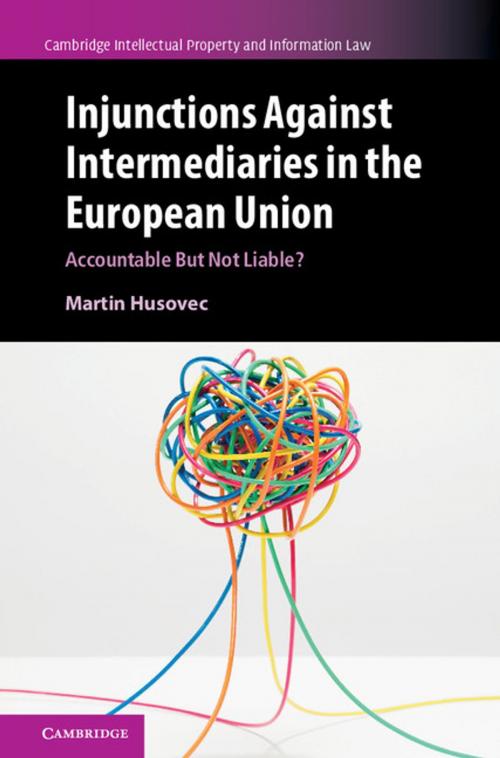Injunctions Against Intermediaries in the European Union
Accountable But Not Liable?
Nonfiction, Reference & Language, Law, Intellectual Property, Social & Cultural Studies, Political Science| Author: | Martin Husovec | ISBN: | 9781108244466 |
| Publisher: | Cambridge University Press | Publication: | November 30, 2017 |
| Imprint: | Cambridge University Press | Language: | English |
| Author: | Martin Husovec |
| ISBN: | 9781108244466 |
| Publisher: | Cambridge University Press |
| Publication: | November 30, 2017 |
| Imprint: | Cambridge University Press |
| Language: | English |
In the European Union, courts have been expanding the enforcement of intellectual property rights by employing injunctions to compel intermediaries to provide assistance, despite no allegation of wrongdoing against these parties. These prospective injunctions, designed to prevent future harm, thus hold parties accountable where no liability exists. Effectively a new type of regulatory tool, these injunctions are distinct from the conventional secondary liability in tort. At present, they can be observed in orders to compel website blocking, content filtering, or disconnection, but going forward, their use is potentially unlimited. This book outlines the paradigmatic shift this entails for the future of the Internet and analyzes the associated legal and economic opportunities and problems.
In the European Union, courts have been expanding the enforcement of intellectual property rights by employing injunctions to compel intermediaries to provide assistance, despite no allegation of wrongdoing against these parties. These prospective injunctions, designed to prevent future harm, thus hold parties accountable where no liability exists. Effectively a new type of regulatory tool, these injunctions are distinct from the conventional secondary liability in tort. At present, they can be observed in orders to compel website blocking, content filtering, or disconnection, but going forward, their use is potentially unlimited. This book outlines the paradigmatic shift this entails for the future of the Internet and analyzes the associated legal and economic opportunities and problems.















